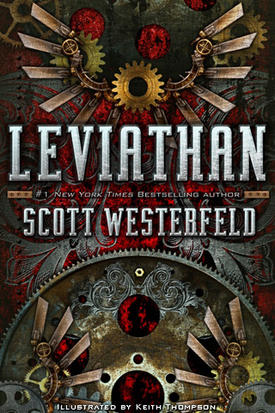 in less than two hundred pages, he doesn't just address the writer's side, but also the process in which stories are created and the many mechanisms within stories that make them move forward. Hence the very apt comparison to clocks, which are, throughout the entire story, a relentless motif. That was my reading of it.
in less than two hundred pages, he doesn't just address the writer's side, but also the process in which stories are created and the many mechanisms within stories that make them move forward. Hence the very apt comparison to clocks, which are, throughout the entire story, a relentless motif. That was my reading of it.But what really makes this book awesome is that it's a good, straight ahead story, too. It boasts a rich cast of characters, including a brave young heroine, an overwhelmed clockmaker, a writer and a man who may or may not be the devil himself. It does have a few scary moments (murders can be rough for the more sensitive readers and this one is pretty visceral), and so generally I would recommend it for ages eight and up to avoid nightmares with the younger, precocious readers who read above their level. It's not as creepy as Coraline, by Neil Gaiman (which I also totally recommend, a succinct, fun but totally creeperiffic) which I have received more than one angry customer complaint about on the grounds that it is too, too scary. But it IS scarier than, say, a Roald Dahl book, even if that headmistress CAN chuck you into the great, blue yonder.


